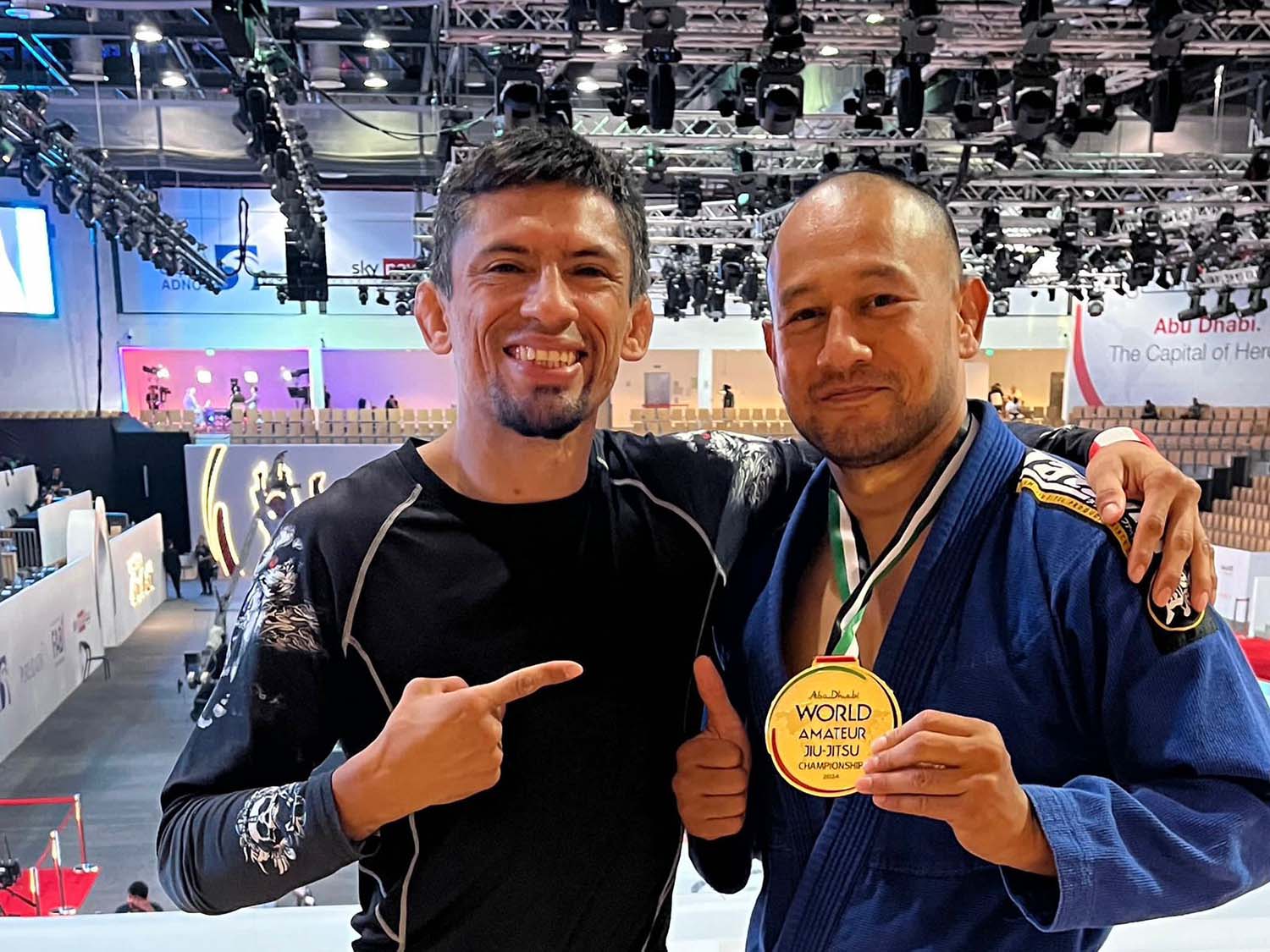Culture & Lifestyle
Once a photojournalist, now a combat sports trainer
Ajay Joshi’s journey shows how discipline and consistency can positively shape a life in unexpected ways.
Aarya Chand
Ajay Joshi’s story begins in Lagankhel, Lalitpur, with no indication it would someday lead to international championships and a life influenced by combat sports. Growing up in a middle-class family as the eldest of three siblings, he experienced the loss of his mother nearly thirty years ago due to diabetes, while his father managed a business to support the family. Now married and a father to a 10-year-old son, Joshi’s life has taken a different path from that of many of his peers. His journey did not commence inside a ring but started behind a camera.
Joshi worked as a photojournalist before lacing up gloves or stepping onto the mat. Starting in 2007, “I covered political events like mass movements for publications like Himal Khabarpatrika and the boss magazine , and later I spent a couple of years at WOW Magazine,” he recalls. The job was physically demanding, involving long hours and carrying heavy camera equipment through crowded, unpredictable settings. Over time, Joshi realised his fitness was declining. “I was overweight,” he admits. “I began boxing because I needed to lose weight. I was 25.”
It wasn’t a lifelong dream or a childhood ambition that brought him to boxing. It was a desire for health, for change. At 25, when many athletes were peaking, Joshi was just beginning. He trained under Prakash Thapa Magar, a South Asian Games gold medalist, and it was through this guidance that he entered the world of competitive boxing. His early efforts paid off: a silver medal in the 2007 National Boxing Championship.
Joshi’s approach to training was never rigid. After boxing, he began exploring other forms of martial arts—Muay Thai, SAMBO, and eventually Jiu-Jitsu. “Boxing has always been my base,” he says, but each discipline added a layer of skill, endurance, and understanding. In 2012, he earned a gold medal in the National SAMBO Championship and another in the MMA Championship held at Rage Fitness the same year. His transition into Muay Thai saw him win gold at the First Srinath National Championship in 2015.
His late entry into Jiu-Jitsu happened only nine months before he would go on to win gold in the World Amateur Jiu-Jitsu Championship in Abu Dhabi in November 2024. It wasn’t planned. “A brother in the Nepal team said, ‘Let’s try it together,’” Joshi recalls. So he did. He trained, entered, and won—becoming the first Nepali to bring home the title.
Joshi’s current life revolves around The Ragefitness gym, where he works as a senior trainer. His day starts early, with Jiu-Jitsu training at 6 am, followed by private boxing sessions from 7 am to 11 am. After spending time with his family in the afternoon, he’s back to teaching from 4 pm to 9 pm. “This is my full-time job now,” he says simply. “Journalism stopped a long time ago.”
He doesn’t frame combat sports as a dramatic transformation of his life, but he acknowledges the changes it brought. It gave him structure, health, and a sense of clarity. “Sports teach you respect. You respect your gurus more. You don’t get short-tempered. You understand loss and learn from it. It humbles you,” he says.
Joshi doesn’t shy away from talking about his failures. “I’ve lost many games. It makes you feel bad, yes. But it also teaches you how to improve.” That mindset—seeing failure as part of growth—has become central to how he trains and lives. For him, success isn’t winning a match; it’s being able to identify a weakness, work on it, and come back better prepared.

‘‘Learning Jiu-Jitsu after years of boxing and Muay Thai came with its own set of challenges,’’ he says. While the former emphasises mobility and grappling, the latter are striking-focused. Transitioning from standing combat to ground-based fighting required new muscle memory and strategies. Joshi explains that Jiu-Jitsu is like a chess game—strategy outweighs brute force, and presence of mind is everything.
When asked if he ever wanted to quit, Joshi is candid. “I couldn’t be regular at first. If I had work at 10 am, I’d skip training. But I would push myself by thinking, ‘‘My opponent is training while I’m resting.’’ That quiet self-discipline kept him going.
His win at the World Amateur Championship, while celebrated, didn’t alter his outlook dramatically. He remembers how the Nepali community working in Abu Dhabi rallied behind him before the final. “When I won, they all came to meet me. Some brought me shirts, others caps. They made me feel proud.”
But pride didn’t become ego. Joshi sees his victory as a message, especially for younger athletes. “If I can do it, they can too,” he says. It’s a message grounded in realism rather than inspiration.
Joshi is clear-eyed about the state of combat sports in Nepal. “Nepal doesn’t get the respect in sports that it deserves. Jiu-Jitsu is just starting out. There’s a long way to go.” But he sees promise. With only two main Jiu-Jitsu training centers in Nepal—one in Kathmandu and one in Pokhara—he believes the scene will grow.
For Joshi, success isn’t a moment or a medal. “It’s yet to come,” he says. “But when I see young people training, focusing on their health and I’m a part of it, that feels like success to me right now.”
His path may seem non-traditional, but Joshi doesn’t dwell on that. He studied management, earned a master’s in finance, and even worked an office job. “It wasn’t for me,” he says. “It was boring.” Photojournalism gave him a sense of movement and unpredictability. Sports gave him discipline and purpose.
He offers practical advice to anyone considering combat sports, especially Jiu-Jitsu. “Anyone from age 7 to 60 can try it. Yes, you’ll sweat. Yes, it’s hard. But it builds your body, your mind, and your reflexes. More people should try it.”
Now 43, Joshi isn’t looking back. He’s planning to compete again in Abu Dhabi, this time in the blue belt category—against more experienced opponents. He also continues to train and teach daily, passing on what he’s learned. Looking ahead, he hopes to see younger athletes go further than him. “It’s been 20 years. I’d like to see the next generation achieve more,” he says.
In a life shaped by detours, Joshi’s story is not one of reinvention but of persistence. It’s a reminder that some journeys don’t start with dreams but with decisions—often small, sometimes late, always deliberate.




 14.24°C Kathmandu
14.24°C Kathmandu



.jpg&w=200&height=120)











